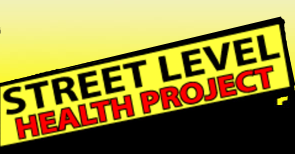In California, two-thirds of the estimated 2.6 million adults who will be eligible for federal subsidies in the health care exchange will be people of color. Roughly 1 million of those eligible will speak English less than very well, according to a joint study by the California Pan-Ethnic Health Network and the UCLA Center for Health Policy Research and the University of California, Berkeley Labor Center.
With such diversity in cultures and language, the report's authors said the success of health care reform "hinges in large part on how well the state conducts culturally and linguistically competent outreach and enrollment efforts."
"If the exchange did no targeted outreach, there could be 110,000 fewer limited-English proficient individuals enrolled," said Cary Sanders, director of policy analysis for CPEHN, an Oakland-based multicultural health advocacy group.
What's in a name?
Even the relatively mundane task of developing a brand for California's new health care exchange has prompted some angst.
The exchange's staff tried to come up with a name that signified health insurance and would translate well into Spanish, Chinese, Tagalog, Vietnamese and other languages commonly used in California.
The exchange's five-member board settled on "Covered California" and is currently testing tag lines to see which words resonate best in focus groups. Advocates disappointed by the name are hoping the board selects a tag line that will be simple to understand and translate.
Zaya Jaden, a 35-year-old immigrant from Mongolia, was at Street Level Health Project to help her sister get her migraines treated. She said she had no idea how "Covered California" would translate to Mongolian.
More importantly, advocates want Covered California to launch an inclusive marketing and outreach campaign in a place where a majority of the population is not white and nearly 7 million residents speak limited English.
"'Covered California' translates to 'California Cubierto' in Spanish -- but what exactly does it mean?" said Laura Lopez, Street Level Health Project's executive director, who immigrated to the United States from Peru years ago. "It's not just providing a piece of paper that says this is what is covered. It's really having people on the ground talking with the community."
California's exchange isn't shying away from the challenges.
Its executive director, Peter Lee, recently announced that new federal funding will be used to support a multi-language campaign, build a network of community-based assistants who can guide people to the right health plan and multilingual call centers.
The exchange is making $43 million available for community-based organizations, faith-based groups, nonprofits and local governments to compete for outreach and education grants.
"California is unique from every other state not only geographically because our population is spread out, but you have multiple ethnic populations that are traditionally hard to reach, and they need their own custom way to be reached," said Oscar Hidalgo, the exchange's communications director.
The exchange estimates that 5.6 million Californians are without health insurance, or 16 percent of the population under age 65. Of that number, 4.6 million are eligible for coverage under the Affordable Care Act, while the rest are not because of their immigration status.
Multi-lingual outreach
Advocates say California should refine its efforts to reach non-English speakers.
Doreena Wong, who promotes health access for immigrants at the Los Angeles-based Asian Pacific American Legal Center, is among those urging the exchange to build a website that is not just in English and Spanish, but to offer translations in other languages prevalent throughout the state: Arabic, Armenian, Chinese, Farsi (Persian), Hmong, Khmer (Cambodian), Korean, Russian, Tagalog and Vietnamese.
According to the U.S. Department of Health and Human Services Office for Civil Rights, organizations that receive federal funding have to provide written notices in English, Spanish and other languages spoken by 10 percent or more of the households in the area they serve.
Wong recently told the board that many people eligible for the exchange aren't proficient in English, have limited education or have never had health care insurance. Other groups have requested the exchange, at a minimum, add Chinese.
Hidalgo said the state's health exchange website, www.coveredca.com, is being created so that more languages can be added later. He said the exchange first needs to launch an introductory website where consumers can learn about impending health care changes, such as federal subsidies for working families and tax credits for small businesses.
"It's very challenging to put together a website that's consumer friendly in English, and then to do it in 13 languages is a very, very big task," he said. "I think what's important for us is to take a step in English and Spanish and figure out what the feedback is. ... We don't have all the answers at this moment, but we're going to find them."
Learn more:
Months Ahead of ACA Sign-Up, Outreach Underway (Healthy Cal)
 OAKLAND, Calif. (AP) — Set on a gritty corner of Oakland's International Boulevard, the nonprofit Street Level Health Project offers free checkups to patients who speak a total of 22 languages, from recent Mongolian immigrants seeking a doctor to Burmese refugees in need of a basic dental exam.
OAKLAND, Calif. (AP) — Set on a gritty corner of Oakland's International Boulevard, the nonprofit Street Level Health Project offers free checkups to patients who speak a total of 22 languages, from recent Mongolian immigrants seeking a doctor to Burmese refugees in need of a basic dental exam.